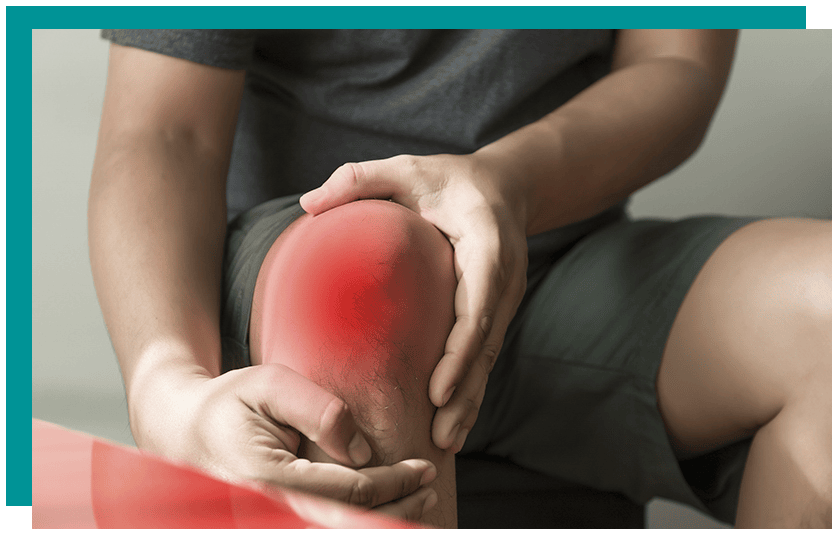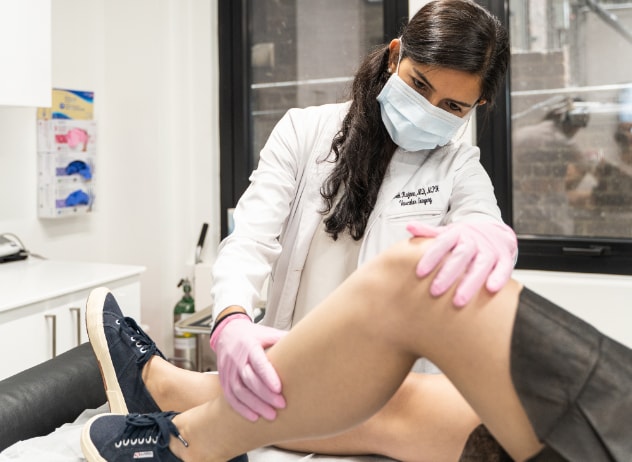What Is Blue Light Therapy For Spider Veins?
There's usually no need to worry. Spider veins themselves aren't dangerous. They just mean that some small blood vessels have been damaged. Spider veins are mostly a cosmetic problem, so you may not like their look, but they won't harm you.
However, sometimes spider veins are an early sign of (CVI). This vein disease can affect your quality of life and lead to complications.
Speak with a healthcare professional if you see spider veins. They can perform a physical exam and determine whether you have risk factors for CVI.
What are Spider Veins?
Before we discuss how to treat spider veins with blue light therapy or sclerotherapy, we need to understand what causes them.
Scientifically known as telangiectasias, spider veins are a small network of blood vessels visible beneath the skin's surface. Because they resemble red spider webs, they are called "spider veins."

Spider veins generally occur on the legs, feet, thighs, and face and can cause slight pain and discomfort.
What is Blue Light Therapy for Spider Veins?
Blue Light Therapy for spider veins uses blue light or laser light to treat them. The laser releases heat-producing photons, which are not UV in nature. The heat can destroy the damaged blood vessels over time, causing the injured vein to contract and finally disappear.
The procedure is carried out under local anesthesia and takes roughly one hour. According to the procedure, is vein ablation painful?
Only you will feel the needle, and the anesthetic is injected. After that, you will only feel some light activity in the leg area but no pain. While not painless, the procedure is far less unpleasant than any other method of treating varicose veins.
How are spider veins treated?
Spider vein treatments include:
● Sclerotherapy. This is a minimally invasive treatment option for spider veins in your legs. A medical professional will inject a chemical solution into your spider vein to seal off it. You should see your spider vein disappear in about three to six weeks. For their spider veins to completely disappear, some people require multiple sessions.
● Laser therapy. This is a non-invasive treatment option for spider veins, usually those in your face. There is no chemical solution or injection, in contrast to sclerotherapy. Instead, a provider uses a laser to heat up and kill the spider vein. If the spider vein is small, you may see it disappear immediately. Larger spider veins may take one to three months to go away. Some people need multiple sessions.

If you're considering treatment, consult a provider about what's best for you. Before treating your spider veins, the provider will look for and address more serious conditions.
How Much Does A Knee Pain Injection Cost?
knee pain injection cost are dependent on the type of knee pain treatment
However, the average cost of knee pain injection. Though it may seem that the cost of knee injections for arthritis is expensive, the benefits of the treatment can outweigh its Self-care can sometimes help you to avoid invasive treatments such as surgery.
Conclusion
You may not like the look of your spider veins. But rest assured, they can often go away with treatment. Still, talking to a healthcare provider about any new spider veins is always a good idea. Sometimes, they may introduce you to more significant issues with blood flow. Ask your spider vein clinic Midtown Manhattan, about lifestyle changes that may help prevent new spider veins from forming.
Comments
Post a Comment